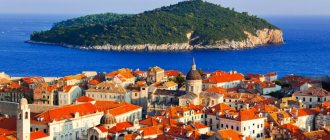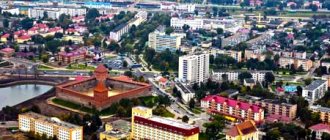Poland is a republic in Eastern Europe, located next to Ukraine, Belarus, the Czech Republic, and Germany. The country has access to the Baltic Sea. Among the other Baltic republics, it has become the most developed, so business immigration to Poland and moving to permanent residence on other grounds is becoming increasingly popular among Russian citizens.
Over the past three decades, the country has been actively developing industry, tourism and agriculture. The European Parliament assessed the strength of the Polish economy, awarding it sixth place in the list of 28 EU countries.
Study at Polish universities and employment
Immigration to Poland through study is one of the most rewarding ways. Despite the affordable prices at universities, the applicant will need a significant amount to pay for tuition and living abroad. There are various grants and scholarships available for students, but the selection for them is quite strict.
Private Academy of Finance and Business in Poland
Polish institutions offer an extensive list of specialties, after studying which the graduate will become a highly qualified specialist and will be able to emigrate for employment to any corner of Europe.
Studying is considered a reasonable and promising step for obtaining permanent residence in Poland, which will significantly facilitate living in the country. Also, during their studies, students can work part-time. Emigration to Poland through employment takes a considerable amount of time. A foreigner has the right to apply for a residence permit after working legally in the country for at least 5 years.
Pros of moving
- Poland is part of the Schengen zone, which allows its residents and citizens to move freely throughout Europe under a visa-free regime.
- The country's cities have preserved their architectural heritage. There are many historical monuments, buildings, museums and squares.
- A large number of cultural events are held here. Poles love to organize holidays, concerts, fairs and sporting events.
- A large number of thermal springs in the country find their fans among lovers of countryside and healthy recreation.
- Stable economy and high standard of living compared to the Baltic states and CIS countries.
- Well-developed public transport. There is a metro here, trolleybuses and buses. The cities are connected to each other by a high-speed train network.
Marriage with a foreign national
Marriage with a foreign national in today's times will not surprise anyone. In Poland, it is allowed to enter into a union at the age of 18; for women, the age threshold can be reduced to 16 years if there are objective reasons. If the relationship is revealed to be fictitious, the non-resident is subject to deportation. Local legislation does not recognize same-sex marriages and does not provide a residence permit in Poland on their basis.
A package of documents for registering a union in Poland
On the territory of Poland, marriages are concluded in the registry office departments or in front of clergy in the temple. If you want to hold a ceremony at the registry office, you will need to submit the following documents:
- Copies of the birth certificate of the bride and groom in Polish;
- Original passports or any other identification documents;
- Receipt for payment of stamp duty.
All documents must be in Polish. Translation for a foreign partner can only be performed by specialists certified by the ministry.
Also, a foreigner must obtain a certificate of the possibility of marriage in his country. The ceremony is held no earlier than a month after submitting the package of documents.
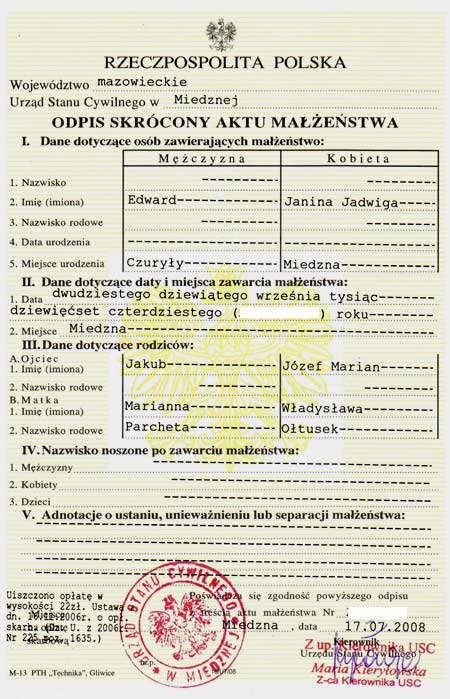
This is what a Polish marriage certificate looks like
When concluding a union under a concordat, it is necessary to submit to the church a document confirming affiliation with the chosen religion (for example, a baptismal certificate) and a certificate from the registry office stating that there are no compelling reasons for not holding the ceremony.
In both cases, a fee of PLN 84 is charged for issuing a marriage certificate. A foreigner who has permanent residence in Poland does not lose it in the event of a divorce from a local citizen.
Nuances when getting married abroad
You can also marry a Polish citizen on the territory of other states. Upon arrival, the couple must officially register their union at the local registry office, providing passports and a copy of the civil act for confirmation. You must also pay stamp duty of 50 PLN.
Given the increase in the number of fictitious marriages for the purpose of obtaining permanent residence in Poland, we should expect a number of amendments to tighten the procedure in the coming years.
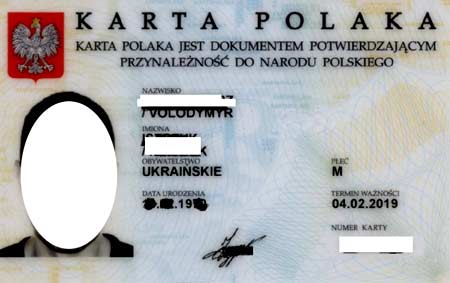
Sample Polish permanent residence card
Investment in the Polish economy
Emigration to Poland through investment in the economy is perhaps the easiest way. There are free economic zones throughout the country. They provide tax benefits, and sometimes even exempt from taxes on profits.
Features of business in Poland
Many domestic businessmen are attracted to Poland for several reasons:
- One of the most stable economies in Europe;
- Support for small and medium-sized businesses. In the first years of the company's existence, various regulatory authorities are prohibited from carrying out inspections;
- Loyal requirements for entering the local market, due to which the costs of opening a company are much lower than in neighboring countries;
- Favorable geographical location. Poland is the central transit of Europe;
- Wide opportunities for conducting activities. There is duty-free trade with EU countries.
Company registration procedure
Registration of a company takes about 1 month. The procedure is simple:
- drawing up a business plan and charter of the enterprise;
- submitting documents for consideration to the commercial court department;
- entry of the company into the commercial register;
- opening a bank account;
- tax registration.
After opening a company, the owner is issued a multiple visa to stay in the country for 180 days a year, after which he can obtain a residence permit. Permanent residence in Poland through a business is issued on a general basis. Permits are only issued if the firm has profits reported on tax returns.
Refugee status
In connection with recent events in the political situation, many Ukrainians have become interested in obtaining refugee status.
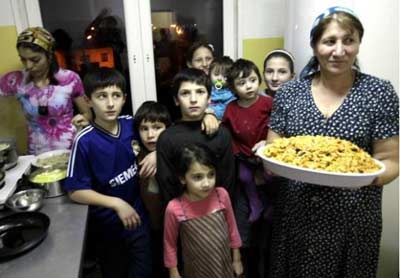
Poland supports the principles of the Geneva Convention, according to which such status is granted only to a limited number of persons:
- For fear of political, racial or other type of persecution;
- If there is a justified threat to life in one’s home state.
When applying for refugee status, there is no need to apply for a visa to enter Poland. You need to write a statement about your desire when crossing the border. It should include detailed personal information and the reason for obtaining the status.
During the consideration of the application, the passport is transferred to the Department of Foreign Affairs. In return, a special identification document is issued. After this, each immigrant is required to undergo an interview to determine the veracity of the information and evidence provided.
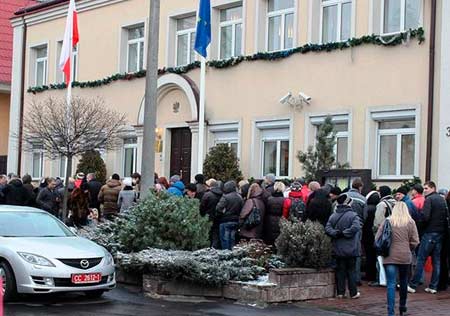
During the consideration of the application, the Polish government provides accommodation in a specialized camp with three meals a day. Refugee status is not granted if a person left his home country due to high unemployment or low material income.
If you have refugee status, you are granted a temporary residence permit in Poland for 2-3 years, after which permanent residence is issued.
During the procedure, you cannot leave the country, otherwise your permanent residence permit will be revoked.
Each refugee is treated like a Polish citizen and has the same rights to receive medical care, education in local educational institutions and social benefits.
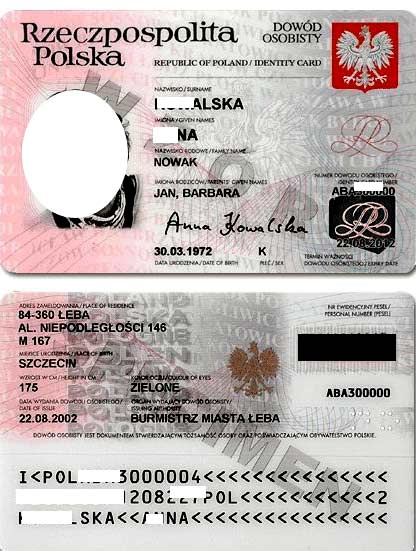
This is what a Polish ID card looks like
It should be taken into account that according to the law, a refugee does not have the right to official employment for the first 6 months. Of course, if you wish, you can find illegal work, but it is better to save up some money to ensure a minimum living requirement at first.
Obtaining refugee status is not easy due to difficulties in the procedure and stricter rules due to the large number of applications, so emigrating to Poland in this way is not the best option.
Immigration through study and subsequent employment
One of the easiest ways to move to this country is to enroll in one of the local universities. Study prices are quite affordable compared to other European countries. But besides this, you also need to have money for living in Poland. Successful students may qualify for grants and scholarships covering up to 100% of their study and living expenses, but they must have convincing academic achievements to qualify. In addition, students can work part-time, which is good for gaining local work experience that is valued by employers.
Obtaining a residence permit
Full immigration to Poland consists of the classic stages: obtaining a residence permit, permanent residence, and then citizenship. On average, the process takes 5-10 years. Negative decisions are not subject to revision.
A residence permit in Poland is issued to each foreign citizen for a different period: from 12 to 36 months. It can be renewed for 10 years.

Example of a Polish residence permit card
For registration, you will need a foreign passport and a passport of your home country, a certificate of absence of criminal offenses. The Ministry of Foreign Affairs has the right to request additional documents. A residence permit allows you to cross the borders of Schengen states once within 6 months with the right to stay for 90 days.
A residence permit in Poland cannot be granted in several cases:
- If a foreigner has permanent residence in the European Union;
- During humanitarian aid activities;
- While serving a sentence for a criminal offense.
After 5 years of residence in Poland on the basis of a residence permit without violations of the legislative framework and official employment with timely payment of taxes, a foreigner can apply for permanent residence.
Possession of permanent residence in Poland for at least 3 years gives the right to apply for citizenship.
For some, moving to Poland will help them escape from the boring and dull environment in their native country, for others it will help them build an excellent career, and for others it will help them acquire a strong family. Everyone independently finds a reason to leave and start life from scratch. The relatively loyal Polish legislation helps a lot with this.
The process of obtaining a residence permit
A residence permit in Poland is issued for 3 years. If there are grounds, the residence permit is extended. More often, the document is issued for employment, education, as well as for family reunification and repatriation. Having this status makes it possible to apply for permanent residence and citizenship in the future.
To enter Poland from Russia you will need a visa - short-term or national. A package of documents is submitted to the visa center or embassy. Main list of papers:
- application in the prescribed form. Contains a number of personal data about the applicant;
- foreign passport with a copy of all pages;
- a few photos;
- photocopy of Russian passport;
- if you have other passports and visas, you must submit photocopies of them;
- entrepreneurs present a business plan;
- workers submit a contract with a resident company for employment;
- diploma of secondary education, diploma apostille;
- students submit an invitation from a local university;
- repatriates prepare documents confirming the presence of family ties and roots in Poland;
- a participant in the family reunification program collects birth certificates of children, marriage certificates, etc.;
- receipt for payment of consular fees;
- other documents at the request of embassy employees.
The cost of obtaining a residence permit depends on the chosen method of relocation. For business immigrants, there are costs for registering a company (500 euros) and forming an authorized capital (at least 1165 euros). Students admitted to state universities receive education free of charge and do not pay a registration fee of 100 to 300 euros. At paid universities, a year of study costs about 2 thousand euros. Employment with a Lifetime Card includes costs for a residence permit in the amount of 163 euros. The same amount is for family reunification. If you have a Pole's Card, a residence permit is issued free of charge.
If all documents are prepared in full and do not contain errors or false information, consideration of the application for a residence permit lasts 2–4 weeks. An entry visa is issued in approximately 2 weeks. Immigration officers study in detail all the data submitted by the applicant, including the method of obtaining a residence permit. In most cases, a residence permit is issued for 1 year with the possibility of subsequent extension for 2 or more years.
Having lived legally in the republic for 5 years, there are a couple of steps left to obtain permanent residence. Other conditions are provided for those who have chosen the emigration program in the form of family reunification or refugee. The applicant must not be absent from the country for 10 months out of the stated period of stay of 5 years. An application for permanent residence is processed within 3–4 months. The documents must be presented in person to the Border Guard, and from there they will go to the local governor. Holders of the Life Card immediately submit documents to the voivode. Permanent residence is valid for 10 years with the possibility of extension an unlimited number of times.
Pobytu Map
The Pobytu card is a plastic card that allows you to stay in Poland. The card is issued only if the foreigner plans to stay in Poland for a period of more than 3 months. This is the same residence permit. But in Poland there are two types of this permit:
- Temporary Living Card. This card allows you to stay on the territory of the republic from 1 to 2 years. This permit can be extended.
- Permanent Living Card. This document is issued for 10 years. This is a permanent residence permit (PR). After the expiration date of the document, it can also be extended. If a foreign resident wishes to obtain citizenship of the Polish Republic, then he should not renew the Life Card, but must submit an application for citizenship.
In addition to these two types, this state also has a Long-Term Resident Card, which is valid for 5 years.
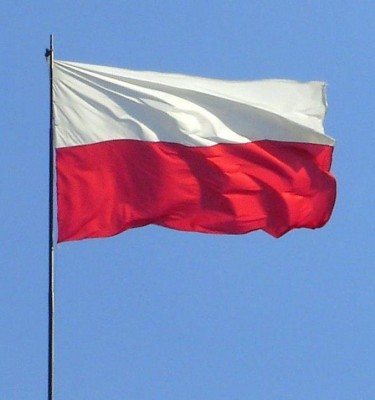
Flag of Poland
Holders of the Life Card are granted the following privileges:
- Visa-free entry into EU countries.
- Stay in the republics of the Schengen area for a period of no more than 3 months.
The Pobytu card also serves as a person’s identity card. It contains the following data:
- Personal initials of the foreign subject.
- His parents' initials.
- Date of Birth.
- Place of Birth.
- Place of residence.
- Nationality.
- Floor.
- Height and eye color.
- Pesel number.
- Type of permission.
- Fingerprint data.
- The authority that issued the card.
- Date of issue.
- End date of the permit.
- A mark regulating the availability of international protection.
The Card also indicates whether a foreigner has the right to work without obtaining a work permit.
Initially, the card is issued for 1 year. After this period, the documents must be resubmitted and the person will be issued a document with a validity period of 2 or 3 years.
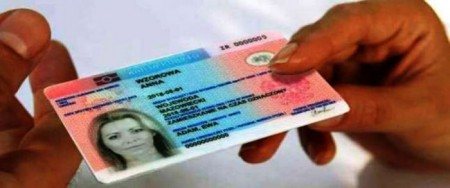
Pobytu Map
To renew your permit, you must submit documents for renewal at least 45 days in advance.
To obtain a Temporary Residence Card, a foreign resident must have grounds.
Reasons:
- Employment on the territory of the Polish Republic.
- Having your own business in this country.
- Studying at a higher educational institution in Poland.
- Attending preparatory courses for admission to an educational institution.
- Completion of scientific practice.
- Family reunification.
The card is issued at the Department for Foreigners' Affairs (Provincial Office).
To obtain a Residential Card, a package of documents is provided:
- Applications in the amount of 4 pieces. All forms must be completed in Polish.
- Foreign passport. The original is accompanied by 3 photocopies of all pages of the document.
- There are 4 photographs.
- An agreement confirming the rental of residential real estate.
- A document confirming the grounds for issuing the card.
- A document confirming the availability of own funds for the period of stay in the state.
- Medical policy.
Issuing a card incurs the following financial costs:
- 640 zlotys – Stamp duty.
- 50 zlotys will need to be paid directly upon receipt of the permit.
On average, a card takes from 1 to 2 months to issue. The Permanent Residence Card (for 10 years), in addition to all the basic privileges, provides a foreign resident with the right to free education in Poland. To obtain a Permanent Residence Card (PRC), a foreigner must have Polish relatives or relatives with Polish roots.
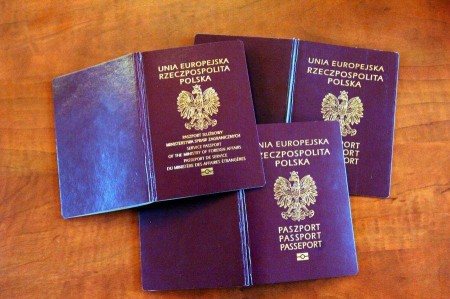
Polish passport
You will also need to prove your level of proficiency in Polish. It will be necessary to prove that the foreigner is familiar with the traditions of the Polish Republic, its geography, history and culture.
Cons of moving
- Climatic conditions are not for everyone. Summers are short and cool with temperatures around 18-20 degrees, winters are cold and wet.
- Despite the general well-being of the economy, there is bureaucracy and corruption, which law enforcement agencies and public organizations are trying to fight.
- Poland lags behind Western European countries in development. Salaries are lower here, and Polish specialists are not in sufficient demand on the international market.
- Public health care does not always cope with the load. Often, to see a specialist, you need to wait from 2 weeks to 2 months.
Permanent residence in Poland
To obtain a permanent residence permit, a foreign resident will need to live in the Polish Republic for at least 5 years. Moreover, the total period of absence from Poland and countries belonging to the European Union cannot exceed 10 months.
To obtain permanent residence, a foreign citizen must submit a package of documents:
- Application in 4 copies. The application must be completed in Polish.
- A certificate confirming the presence of registration in this republic. Additionally, 2 copies of this document are attached.
- A document confirming the presence of a foreigner in Poland for the last 5 years (Temporary Residence Card).
- Autobiography.
- Photographs in the amount of 4 pieces. All photos must comply with Schengen standards.
- Documents confirming education.
- Certificates confirming the financial status of the foreigner.
- Documents confirming the availability of housing in this republic. Additionally, 2 copies of this document are attached.
- Birth certificate of a foreigner.
- International passport.
- Photocopy of the visa.
- An agreement with an employer or a document confirming that a foreigner is studying at a university in this country.
- Certificate of no criminal record.
- Certificate from the tax office at the place of registration. The certificate must confirm the absence of debts to the state.
On average, obtaining a permanent residence permit takes from 3 to 4 months.
All submitted papers are sent for consideration to the Border Services. Then they are transferred to the Voivode at the place of registration of the foreigner for consideration. To obtain permanent residence you will need to pay about $300.

According to the legislative act of June 1, 2014, all foreign nationals who are owners of Temporary Residence Cards can apply for permanent residence under a simplified scheme. The simplified system means that there is no need to submit documents to the Border Service. The applicant should simply take the papers to the Voivodeship Office.
Upon receipt of a refusal to obtain permanent residence, the applicant is obliged to submit a letter of appeal to the Ministry of Internal Affairs of Poland within the first 2 weeks. The appeal process takes approximately 2 months .
If a foreign resident has received a residence permit on the basis of family reunification, then he has the right to apply for permanent residence after 3 years. Permanent residence is issued for 10 years, but it can be extended an unlimited number of times. This permit allows its holder to enjoy all the benefits and rights of citizens of EU countries.

EU country flags
Privileges provided by permanent residence:
- A foreign national has the right to repeatedly cross the borders of countries included in the Schengen area. In this case, the foreigner does not need to obtain a visa in advance.
- The holder of this permit can work in Poland without a work activity permit.
- A foreign resident has the right to purchase real estate without prior permission.
- A foreigner has the right to obtain loans from Polish banks for personal purposes.
- A foreign national can use medical services free of charge.
- After 2 years of living with permanent residence, a foreigner has the right to apply for citizenship.
Life in the country
Those who get a job at the factory as guest workers, as a rule, live for free in factory dormitories. Most often these are Ukrainians who have come to work for 3 to 6 months. They earn money and return to their homeland. The rest rent housing on their own.
It is difficult to find good housing in Warsaw. This is due to the fact that good options are sold out very quickly. To agree on a lease, you must provide passport information and a deposit equal to one month's rent. If you return the apartment to the owner safe and sound, your deposit will be returned to you. Renting a studio apartment near the city center will cost 1,600 PLN (31,259 rubles), and you will additionally have to pay utility bills. To live even cheaper, you can rent a room with all amenities. It will cost 1190 PLN (23249 rubles) per month.
If you plan to stay in Poland seriously and for a long time, it will be beneficial for you to take out a mortgage at 3.5% instead of renting a home. Your monthly payment will be the same for the life of the loan, and rental rates tend to increase. In addition, the country has a program to support young families, under which the state pays 20% of the cost of the apartment towards the mortgage. It is valid not only for citizens, but also for foreigners with a residence permit.
There is one more limitation. Anyone can buy an apartment in Poland, but only citizens of the state can buy a house with land. However, you can try to get permission to purchase a house by sending a petition addressed to the voivode (this is a position similar to the governor). It often ends in approval.
A travel card for public transport for 1 month costs 110 PLN (2149 rubles). It is more profitable to take a card with a validity period of 3 months - it turns out cheaper. It will cost 270 PLN (5275 rubles). A one-time ticket valid for 1 day will cost 15 PLN. A single trip will cost from 3.4 PLN (trip duration 20 minutes) to 4.4 PLN (trip duration 75 minutes).
State healthcare is free. In state pharmacies you can get free medicines, or at a significant discount, if you have a prescription from a doctor. Almost all medications require a prescription. Without it, you can only buy standard cold medications and herbal dietary supplements.
Poles can take advantage of free healthcare when traveling throughout the European Union. To do this, you need to obtain a European Health Insurance Card. It can be issued for free if you officially work and pay taxes in Poland. It works just like any other travel insurance.
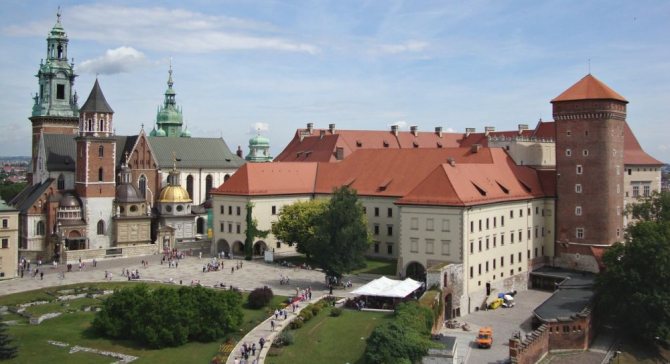
Registration of permanent residence with a Pole's Card
If an NRM is issued on the basis of a Pole’s Card, then the list of required documents is significantly reduced. You only need to submit the following documents:
- Application in 3 copies.
- 4 photographs.
- Passport and 3 copies of it.
- Pole's map.
- Birth certificate of a foreign national.
- Receipts confirming payment of fees (640 and 50 zlotys).
"PESEL"
As you know, to receive a Residential Card you will need to present your PESEL number. This is an identification number that is assigned to every person living in the Polish Republic.
The number consists of 11 digits. Each number contains different information, so it is highly undesirable to lose or damage the number.
"Components" of PESEL:
- Numbers 1 and 2 indicate the last days of the year the person was born.
- The 3rd, 4th is the month of birth.
- The 5th, 6th is the day a person was born.
- From 7 to 10, the number indicates the serial number and gender of the foreign subject.
- The 11th number is the control number.
You can issue a number in two ways:
- By registering for a period longer than 90 days. The period for registration of a number is from 7 to 30 days.
- Through employment. But in this case, it will not be the foreign resident himself who will issue the number, but his employer. He will need to send an application to the Ministry of Internal Affairs with a request to assign a number.
Pole's card
The legislative act “On the Pole's Card” was adopted back in 2007. According to this act, the card should help citizens of the countries of the Commonwealth of Independent States who consider themselves to be Polish people, but for some reason do not currently live on its territory.
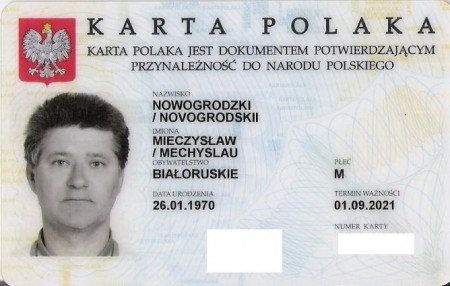
Pole Map
In other words, the Pole's Card is a document confirming that a foreign resident is related to the Polish people. Do not confuse the Pole's Card with the Life Card. These are different things. The Pole's Card is not a visa or residence permit; it confirms belonging to the Polish culture and people.
Holders of the Pole Card are provided with numerous advantages:
- Applying for a national visa to the Polish Republic according to a simplified procedure. Holders of this card do not pay visa and consular fees.
- Employment on the territory of the Polish Republic without special permits.
- Conducting business activities on an equal basis with residents of this republic.
- Possibility of immigration.
The Pole Card is a plastic card. The validity period of this document is 10 years. You can obtain a card only at the consulate of the Polish Republic. To receive it, basic documents (passport, birth certificate) and papers confirming that the applicant belongs to the Polish people are submitted. Such documents are papers confirming relationship with people of Polish nationality/citizenship.
Subscribe to the Visaasam.ru channel in Yandex Zen
This means that if one of the applicant’s direct relatives is Polish, then he already has the right to apply for a card. If a foreigner was born on the territory of one of the republics of the Soviet Union, then he also has the right to receive this document.
Foreign nationals who have permanent residence in the Polish Republic cannot apply for a Pole's Card.
Attitude of Poles towards migrants
Poles and Russians are considered Slavs. This is why many Poles behave with restraint towards migrants. It cannot be emphasized that the indigenous Poles are infinitely glad that hundreds of Ukrainians and Russians come to their territory every year for the purpose of permanent residence. But there is no particular discrimination.
It all depends on the behavior of the emigrants themselves. If they behave appropriately, then there will be no objections or disdainful attitude from the Poles. If a migrant begins to actively proclaim his home country in Poland, then the Poles may not answer him in a completely correct manner and put him in his place.
Immigrants in Poland will pay for their own assimilation
Migration issues are extremely important for Polish society. Although formally just over 300 thousand foreigners permanently reside in Poland, of which no more than 20 thousand are Muslims, it was under the slogans of countering Muslim migration that Jaroslaw Kaczynski’s Law and Justice (PiS) party came to power four years ago. In September 2015, the liberal government of Poland, under pressure from the EU, committed itself to housing 7 thousand migrants from refugee camps in Italy and Greece in the country, which PiS did not fail to take advantage of.
During the election campaign in the fall of 2015, Law and Justice began to intimidate Poles with refugees, Muslim invasion, and terrorism. Jaroslaw Kaczynski personally warned against epidemics - they say, refugees can carry parasites and diseases. After winning the elections, the government formed by PiS decided that it would not honor the obligations of its predecessors and would not accept a single refugee. Anti-immigrant rhetoric and telling voters that Poland is a Christian stronghold under siege by Muslims remains the core of the party's ideology to this day.
A clear indication of this is the draft of the country’s new migration policy prepared by the Ministry of Internal Affairs and the administration of Poland, which was published by the newspaper Rzeczpospolita at the end of June 2021. The document, which has yet to be approved by the Polish government, is intended to replace the previous action plan in the field of migration policy, adopted in 2012 by the government of Donald Tusk , but not formally in force since 2016.
According to the Ministry’s own estimates, by 2030 there will be more than 1.5 million workers in Poland, and the number of vacancies could then exceed 4 million. However, according to the authors of the document, the country’s immigration policy should focus on the cyclical and short-term stay of guest workers (that is, maintaining the current situation), encouraging the return of Poles from the East, as well as creating a very strict system of integration and assimilation of foreigners who want to stay in Poland. At the same time, migration policy should be carried out in accordance with the concept of the dominant culture, establishing certain boundaries for immigrants to function in the state, and not in accordance with the multicultural model.
“It is also important to emphasize that the system for the integration of foreigners must make integration a definite obligation, and not just one of the options that a foreigner can choose. Therefore, first of all, it is necessary to achieve effective integration and subsequent assimilation of this or that foreigner,” the document says. The project provides for the creation of a comprehensive system of integration and assimilation of immigrants, while the issuance of a permanent residence permit will depend on the successful completion of the integration programs provided for by the system, participation in which will be... paid for a foreigner! Although we are talking about “partial or symbolic payment,” no specific figures are given.
According to the document, if in the future the demographic situation of Poland does not improve and there are no tangible results from the return of Poles from labor emigration to the West (its volume is estimated at 2.5 million people) and their repatriation from the East, then in connection with changes in the demographic situation it is also necessary consider the possibility of starting active measures for migration with the aim of relocating guest workers “from selected countries,” primarily those who are culturally and religiously close. The draft expresses concerns about a reduction in the flow of labor from Ukraine, and recommends that special attention be paid to attracting workers from Belarus. At the same time, Russia is named Poland’s main competitor in the struggle for the labor of Ukrainians and Belarusians.
The project proposes to strengthen mechanisms that should increase the security of the state, especially in the process of countering and combating illegal migration, in a situation of increasing flow of labor immigrants, as well as “the increasingly common risk of their radicalization in terms of religion and worldview.” It is worth noting that the document is fully consistent with public expectations: according to a study conducted at the end of May 2021 by Social Changes, 32% of Poles surveyed definitely consider uncontrolled migration a threat to Poland, another 34% rather agree with this. At the same time, only 5% of respondents definitely do not consider this problem a threat to the country, 12% rather do not think so, and 17% are undecided on the answer.
At the same time, scientists sharply criticize the government project. For example, the opposition Gazeta Wyborcza published a large material by professors Krzysztof Jaskulowski and Patricia Matusz , who draw attention to the key paradox of the new migration policy: according to the document, a good immigrant is an assimilated immigrant who has absorbed Polish culture and Catholicism, but a good emigrant Pole must cultivate Polish language and culture while abroad.
And the Migration Research Committee of the Polish Academy of Sciences issued a special statement in which it called the government project unacceptable and not subject to correction, since it is based on the assumption of the threat that the reception and resettlement of migrants poses to Poland and Polish society, according to scientists - “more degree of imagined rather than real threat.” The Committee called on the Polish government to start preparing a new migration policy with a “clean slate”, to involve experts from various fields in this process and to ensure wide public discussion.
However, even the discussion around the document prepared behind the scenes has already borne first fruits - the Ministry of Internal Affairs and Administration of Poland announced that it was abandoning the introduction of a “tax on childlessness” proposed in the draft. On the other hand, the calls of Polish employers and guest workers themselves have not yet been heard. For example, Louis Amaral , president of the Eurocash group, owner of several Polish supermarket chains, said in a recent interview with the Financial Times that if Poland does not liberalize the conditions for employment of foreigners, primarily from Ukraine, then in the coming years this could lead to a slowdown in economic growth. growth in this country. And Yuri Karyagin , head of the Intersectoral Trade Union of Ukrainian Workers in Poland, said in a comment to the Polish portal Onet: “We need to fight illegal employment. In my opinion, this could be helped by an amnesty for illegal migrants so that they can register without being deported. Everyone would benefit from this. “I wrote to the Prime Minister and the President on this issue, but received answers that now is not the time.”
It is unlikely that the right time will come before the parliamentary elections that will take place in Poland this fall. After all, until now, any attempts to talk about liberalizing the employment of migrants, even for high-ranking government officials, have ended sadly. For example, when in September 2021, Deputy Minister of Investment and Development Pawel Horunzy said: “If we don’t start accepting more immigrants, the Polish economy will slow down,” he was immediately dismissed.
As Kaja Puto in Polityka magazine, PiS is repeating the mistakes of Western countries on the issue of migration - like Germany in the 1960s, it is trying to convince the electorate that guest workers came to the country only for a short time, and does not offer them anything. “We already know that this doesn’t work - many of them will remain in the country. And this is good, because this is the only way to ease the Polish demographic crisis. It is precisely these migrants – who regularly pay taxes, send children to school and fuel consumption – that Poland will need most,” writes a Polish journalist.
It is noteworthy that every year in Poland the number of legal labor migrants from Asian countries, including Muslims who are so unloved by PiS, is increasing. For example, back in 2021, 7 thousand citizens of India and Nepal received work visas at the Polish consulate in New Delhi - that is, the same number as the Polish government refused to accept two years earlier. According to data from the Office of Foreigners, in January 2021, 8,850 Indian citizens and 1,562 Nepalese citizens had documents confirming the right to temporarily reside and work in Poland. The number of guest workers from Bangladesh, Burma and Tajikistan is also growing every year. A separate story is that there are more than 4 thousand Chechens, most of whom have refugee status or are in the process of obtaining it.
It is unlikely that all these people will agree to participate in “integration programs,” much less pay for it. Therefore, it is possible that Warsaw’s new migration policy will turn into a kind of “assimilation tax,” primarily for guest workers from Ukraine, who make up the majority of both legal and illegal immigrants in Poland.
Social support
Every person emigrating to Poland can count on social assistance from this country only if they receive a residence permit.
On the territory of the Polish Republic there are many foundations that provide assistance to foreign citizens in the field of psychology and jurisprudence. Many foundations help immigrants improve their skills, learn the national language and get to know the culture.

Some of the most popular funds are:
- "Family Assistance Fund"
- "Foundation for Social and Professional Integration."
- "Legal Mediation Fund".
Special privileges are provided to pregnant women. The thing is that over the past 3 years the population in Poland has sharply decreased, so the government strongly supports the motherhood initiative. Moreover, a woman’s nationality does not matter if she decides to stay for permanent residence in Poland. After the birth of a baby, each woman is paid a lump sum benefit of approximately 1,000 zlotys ($250). Also, a woman has the right to take maternity leave until the baby is 3 years old .
Immigration methods
Poland is one of the most interesting countries in Europe; many citizens of Russia and the CIS dream of getting here. The Polish mentality differs little from the Russian one, and on the streets you can meet both Russians and Belarusians or Ukrainians. The language is as close as possible to the native language, so there is no special adaptation difference here; adapting to life in Poland is quite easy. The country is geographically close to Russia, so you can come to your homeland.
The most common methods of immigration
- education;
- Job;
- family ties or marriage with a citizen of this country;
- Pole card;
- doing business on the territory of the republic.
People whose professions will benefit the authorities of the republic (for example, workers) have the highest chances of moving to Poland.
Poles themselves prefer to go to Germany, while migrants from the CIS come to the republic.






